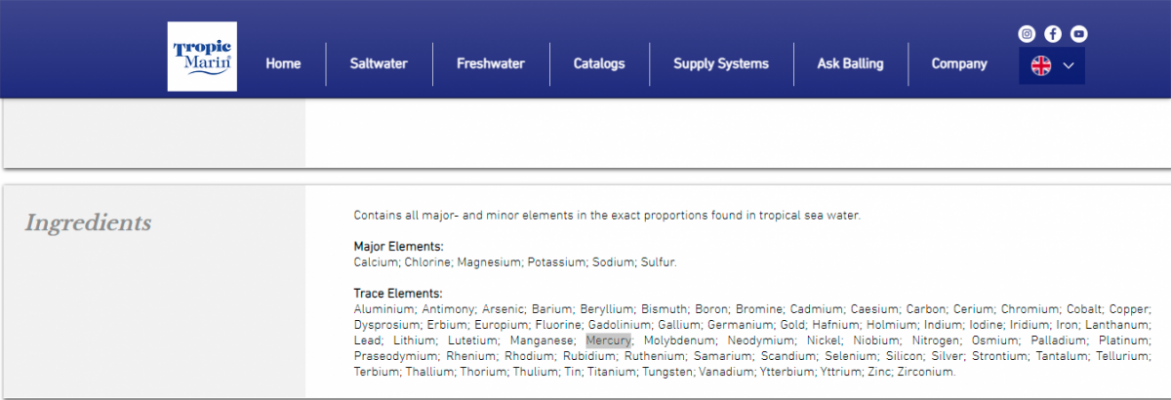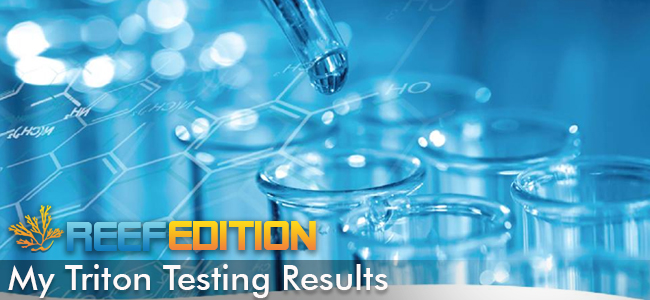I'm new to the hobby and have been looking for salt mixes. I was looking at Tropic Marin's website and in their salt ingredients they put Mercury as one of the trace elements. I'm a bit confused. Is there a use for mercury by aquarium inhabitants?
Also is this alright or would the mercury somehow accumulate after using the salt a lot overtime? I looked at other brands and they don't list mercury anywhere. But is it safe to assume that other salts also have mercury as a trace element because it's in natural seawater? Or is this just a Tropic Marin thing?

Also is this alright or would the mercury somehow accumulate after using the salt a lot overtime? I looked at other brands and they don't list mercury anywhere. But is it safe to assume that other salts also have mercury as a trace element because it's in natural seawater? Or is this just a Tropic Marin thing?




















